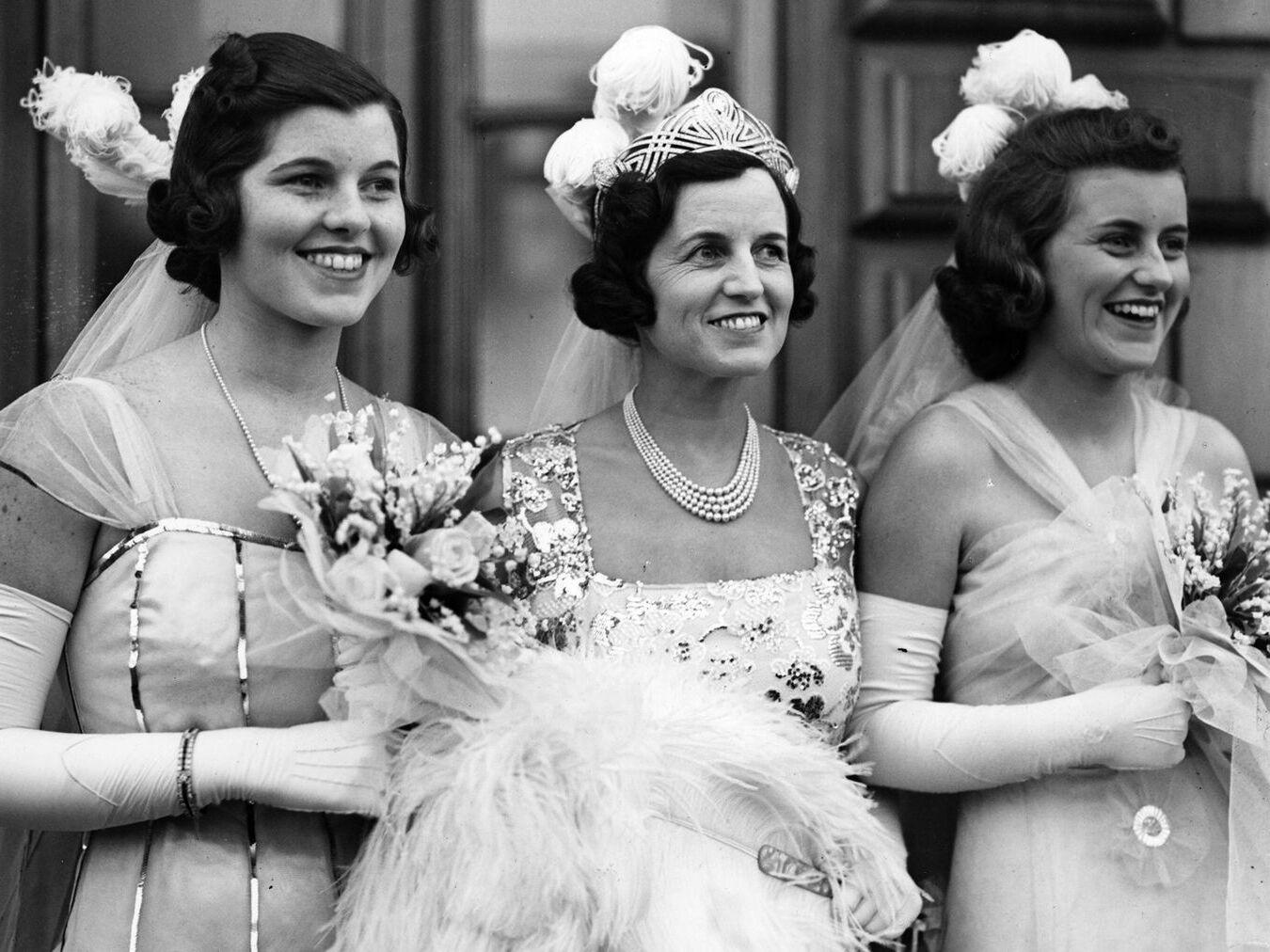
Who was Rosemary Kennedy? Rosemary Kennedy, born in 1918, was the third child of Joseph and Rose Kennedy. She was the sister of President John F. Kennedy and Senators Robert and Ted Kennedy. Rosemary's life was marked by tragedy and mystery. She faced developmental challenges from a young age, which led to her parents seeking various treatments. In 1941, she underwent a lobotomy, a controversial procedure that left her permanently incapacitated. This decision profoundly impacted the Kennedy family and influenced their advocacy for mental health and disabilities. Rosemary's story is a poignant chapter in the Kennedy legacy, shedding light on the struggles and resilience within one of America's most famous families.
Key Takeaways:
- Rosemary Kennedy's life, filled with challenges and love, inspired her family to advocate for people with disabilities, leading to the creation of the Special Olympics and other initiatives.
- Despite her struggles, Rosemary's legacy continues to influence policies and programs that advocate for the rights and dignity of individuals with intellectual disabilities, leaving a lasting impact on mental health advocacy.
Early Life of Rosemary Kennedy
Rosemary Kennedy, the third child of Joseph and Rose Kennedy, led a life filled with both privilege and challenges. Her story is one of the most poignant in the Kennedy family history.
- Born on September 13, 1918, in Brookline, Massachusetts, Rosemary was the first daughter in the Kennedy family.
- She was named after her mother, Rose Fitzgerald Kennedy.
- Rosemary's birth was complicated, leading to a delay in delivery that caused a lack of oxygen, which likely contributed to her intellectual disabilities.
- Despite her challenges, she was a cheerful and loving child, adored by her siblings.
Education and Early Struggles
Rosemary's education journey was marked by numerous struggles and adjustments. Her family sought the best possible care and education for her.
- She attended several schools, including the prestigious Sacred Heart Convent in Elmhurst, Providence.
- Her parents noticed her learning difficulties early on, prompting them to seek specialized education.
- Rosemary's struggles with reading and writing were evident, but she showed talent in other areas like sports and dance.
- Her father, Joseph Kennedy, was determined to find a solution to help her lead a more independent life.
The Lobotomy and Its Aftermath
One of the most tragic chapters in Rosemary's life was the decision to undergo a lobotomy, a procedure that had devastating consequences.
- In 1941, at the age of 23, Rosemary underwent a prefrontal lobotomy, a controversial procedure at the time.
- The surgery was intended to calm her mood swings and make her more manageable, but it left her permanently incapacitated.
- After the lobotomy, Rosemary's mental capacity was reduced to that of a two-year-old child.
- She was unable to speak coherently and lost the ability to walk for a long time.
Life in Seclusion
Following the lobotomy, Rosemary's life took a drastic turn. She spent much of her remaining years away from the public eye.
- She was placed in the St. Coletta School for Exceptional Children in Jefferson, Wisconsin.
- Her family rarely spoke of her condition publicly, maintaining a veil of secrecy around her situation.
- Despite her seclusion, Rosemary received visits from her family members, especially her mother, Rose.
- Her siblings, particularly Eunice Kennedy Shriver, were deeply affected by her condition and sought to improve the lives of people with intellectual disabilities.
Legacy and Impact
Rosemary Kennedy's life, though filled with personal struggles, had a profound impact on her family and society.
- Her sister, Eunice Kennedy Shriver, founded the Special Olympics in 1968, inspired by Rosemary's challenges.
- The Kennedy family became strong advocates for the rights of people with disabilities.
- Rosemary's story brought attention to the need for better mental health care and the dangers of untested medical procedures.
- Her life and struggles were a catalyst for significant changes in how society views and treats individuals with intellectual disabilities.
Personal Interests and Talents
Despite her challenges, Rosemary had several interests and talents that brought joy to her life.
- She loved to dance and was known for her grace and enthusiasm on the dance floor.
- Rosemary enjoyed swimming and often participated in family swimming competitions.
- She had a keen interest in fashion and enjoyed dressing up for family events.
- Her cheerful disposition and love for music were evident in her interactions with family and friends.
Family Relationships
Rosemary's relationships with her family members were complex but filled with love and care.
- She was particularly close to her younger sister, Eunice, who admired her strength and resilience.
- Her father, Joseph Kennedy, felt a deep sense of responsibility for her well-being and made significant efforts to find solutions for her challenges.
- Rosemary's mother, Rose, was a constant presence in her life, providing support and care.
- Her siblings, including future President John F. Kennedy, were protective of her and sought to include her in family activities.
Later Years and Passing
Rosemary's later years were spent in relative seclusion, but she remained an important part of the Kennedy family.
- She continued to live at St. Coletta School for Exceptional Children, where she received care and support.
- Her family ensured she had the best possible care, visiting her regularly and celebrating holidays together.
- Rosemary's condition remained stable, but she required constant supervision and assistance.
- She passed away on January 7, 2005, at the age of 86, surrounded by her family.
Rosemary Kennedy's Influence on Mental Health Advocacy
Rosemary's life had a lasting impact on mental health advocacy and the treatment of individuals with disabilities.
- Her story highlighted the need for compassionate and ethical treatment of people with intellectual disabilities.
- The Kennedy family established the Joseph P. Kennedy Jr. Foundation, which focuses on improving the lives of individuals with intellectual disabilities.
- Rosemary's life inspired numerous initiatives aimed at promoting inclusion and support for people with disabilities.
- Her legacy continues to influence policies and programs that advocate for the rights and dignity of individuals with intellectual disabilities.
Remembering Rosemary Kennedy
Rosemary Kennedy's life, though marked by challenges, left a lasting legacy that continues to inspire and advocate for those with intellectual disabilities.
- Her story is a reminder of the importance of compassion, understanding, and support for individuals with disabilities.
- The Kennedy family's dedication to improving the lives of people with intellectual disabilities remains a testament to Rosemary's enduring influence.
Reflecting on Rosemary Kennedy's Life
Rosemary Kennedy's life was a mix of joy and hardship. Born into a famous family, she faced challenges that shaped her journey. Her struggles with mental health led to a controversial lobotomy, which had lasting effects on her well-being. Despite these difficulties, Rosemary's story brought attention to the importance of mental health care and the need for compassion.
Her legacy lives on through the work of her family, who have championed causes related to disabilities and mental health. Rosemary's life reminds us of the importance of understanding and supporting those with unique challenges. Her story is a testament to the resilience of the human spirit and the impact one person can have on raising awareness and driving change. Rosemary Kennedy's life, though marked by struggle, continues to inspire and educate future generations.
Frequently Asked Questions
Was this page helpful?
Our commitment to delivering trustworthy and engaging content is at the heart of what we do. Each fact on our site is contributed by real users like you, bringing a wealth of diverse insights and information. To ensure the highest standards of accuracy and reliability, our dedicated editors meticulously review each submission. This process guarantees that the facts we share are not only fascinating but also credible. Trust in our commitment to quality and authenticity as you explore and learn with us.


